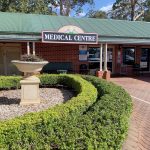
Be careful what you put in your mouth
- Contaminated food and water are the most common ways to develop illness while away. Diseases include Typhoid, Hepatitis A, Travellers diarrhoea and Cholera
- Even travellers to 5 star hotels need to consider protection from food and water borne diseases
- Ensure your water is properly purified and your food is well cooked, boiled or peeled
- Brush your teeth with purified water
- Avoid drinks with ice.
Avoid Insect & Animal bites
- Wear protective clothing
- In some countries mosquitoes can carry Malaria, Dengue Fever, Japanese Encephalitis and Yellow Fever
- Use effective insect repellents
- Sleep in screened rooms or under mosquito nets
- Stay way from animals to avoid being bitten or scratched as this can lead to a number of infections including rabies which is fatal if not treated.
Don’t play in the dirt
- Bacteria and parasites live in soil and are capable of entering broken skin
- Soil can be contaminated by animal faeces and tetanus spores
- Always wear protective footwear.
Be careful what you share
- Many diseases are transmitted from person to person through coughing and sneezing, from the common cold and flu to meningococcal meningitis and diphtheria
- Avoid exposure to infected people and avoid crowded places where possible
- Wash your hands regularly or use sanitised hand wash/wipe
- Always wash hands before eating or preparing food
- Cover your mouth when coughing or sneezing.
Remember vaccination is often your best defence. Many diseases are covered in your routine childhood immunisations but adults may require boosters.
Specialised travel vaccines are kept in stock at Travel Clinics Australia clinics nationwide.
Your travel doctor is the best person to advise on what is best for your specific needs.
Other things to consider
A travel first aid kit.
Ensure you have enough of your regular medications and carry these in your hand luggage in case your checked baggage is lost or delayed.
These medications should be authorised for use by your doctor as in certain countries restrictions may apply. The Travellers Pocket Medical Guide given to each traveller at the travel clinic has a customised section for this purpose.
Scan or photograph your important documents and keep them on your smart phone.
Download the Travel Clinics Australia Vaccine App to keep a handy record of your vaccines and access detailed travel health issues quickly and easily.
Check Visa requirements.
Be aware of different climates and pack accordingly, keep up fluids in hot climates.
Talk to your doctor about minimising the risk of DVT on long flights.
Be prepared for culture shock. You may experience different practices, attitudes and poverty that can be confronting.
Don’t leave home without Travel Insurance, medical treatment overseas can be very expensive!
Register your trip on www.smartraveller.gov.au and check their warnings.



